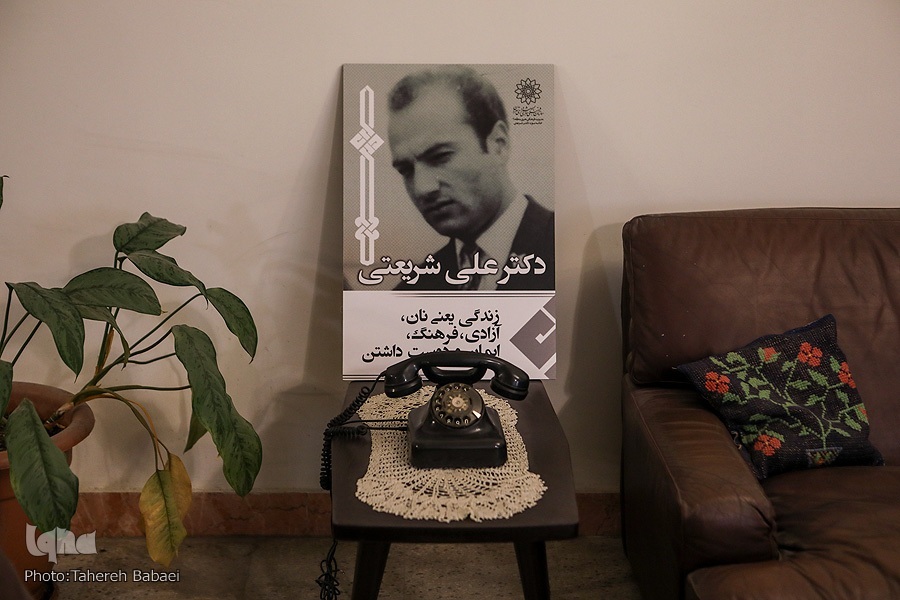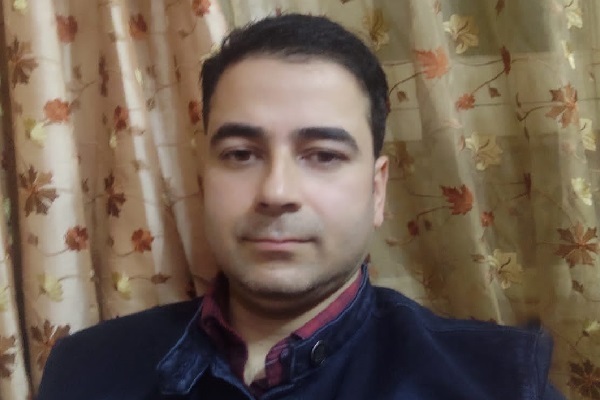Ali Shariati: A Forgotten Revolutionary

Ali Shariati was born in Mazinan, a suburb of Sabzevar in 1933, Iran. In the late nineteenth and early twentieth centuries, the entire Muslim world came under the political and colonial domination of the western powers. This colonization was not only political in nature but social, cultural, economic and ideological too. The colonial policy was aimed at the westernization of the colonized people and it was called a process of humanization, modernization and emancipation. The main objective of this policy was to deform (socially and culturally) and debase (ideologically) the colonized Muslim people in Asia and Africa. There were some creative scholars who analyzed the Muslim problems objectively and provided solutions in the situational context. The latter group of theologians to revolutionaries, attained tremendous importance and influence in the recent past when the entire Muslim Ummah was living under the colonial yoke. These scholars included Syed Ismail Shaheed, Syed Ahmad Ras Shaheed, Allama Muhammad Iqbal, Abul Ala Maudoodi, Hasanul Banas, Syed Qutb and others. They all have one feature in common. They wanted to reconstruct the damaged Muslim society in a modernized form and according to the situational demand, but within the framework of dynamic Islam.
Ali Shariati belonged to that generation of the contemporary Muslim Scholars. He stood for Islam-pure, original, dynamic, revolutionary, ordained by God and practiced by the prophet Muhammad (PBUH). He also stood for the suffering Muslims who were exploited, tortured and humiliated by the local Muslim rulers as well as by the alien powers. His contribution to Islam and Muslim society was profound because of the following reasons. First, his comprehensive knowledge, derived from the original sources, covered the domain of religious as well as worldly affairs. Second, he was not debased culturally and did not lose his roots, though he lived in the west. He consistently maintained his originality. Third, and the most important, he was not a theoretician only, but an active worker too. He actively participated in politics not for power but for revolution. Shariati explained and analyzed fundamental problems of the Muslim society and presented their sociological critique in the contemporary sense. While he provided the alternatives for fighting against corrupt and despotic Muslim rulers as well as exploitative colonial powers, he developed serious ideas and methods for the Islamic reconstruction of his ideas and methods in order to revolutionize the static Muslim society. So, he worked systematically for basic social transformation among the Muslims. Though he suffered seriously at the hands of the Shah of Iran and his masters outside, he never eschewed preaching and pursuing the revolutionary path.
Ali Shariati after describing all the ills of society brings attention towards the responsibility and duty of the society so as to know the reason and cause of backwardness, deterioration, and stagnation, and to find out the way, that is to educate the snoozing society. Afterward, he ought to find out the ways and means and rational solution in the available resources. By proper utilization of resources then one should know the causes of problems, sufferings, miseries, and other factors, that is, of external and internal nature. At last, an enlightened being would be able to transmit this understanding to society outside the narrow and limited group of his generation. Shariati was innovative, seeking to apply Islam to the contemporary context and make it relevant to modern times. He aimed at transforming Islam from a private moral and religious system into a revolutionary movement. Shariati called for launching of religious revival that is, awaking them from slumber. By revival and renewal, he wants to revitalize and make them aware and make society go back to life and movement, and fighting suppressions. He alleged that by going back to life and motion the society will regain the revival and renaissance of cultural independence in countenance with Western culture. He pleaded that the destruction of various factors affecting Islam, hindered, and obstructed the development of thinking and destiny of the society. Shariati also called for eliminating the imitation and replacing it with independent reasoning, that is, Ijtihad. The moving force for revolution is ideology. By ideology, fatalism is replaced with the psycho-moral ethos “ought to be” by which the present utopia can be ousted. Shariati believes that Islam needs revival and renewal which will be beneficial and helpful for the change. He thinks Islam has the solution to every problem. He finds in the Quran the people (al-nas) are the chief force inducing social change. The masses collectively represent God and the Quran equalizes God with the masses in social matters which like Marxist conviction, legitimizes mass mobilization by revolutionary Islamic discourse. Ali Shariati says, an enlightened Muslim must be aware of the truth that he has inimitable culture which is neither completely spiritual, mystical, or philosophical, nor completely materialistic and technological like Western. It’s the combination of spirituality, idealism, faith, justice, and equality. He advised the Muslim intelligentsia to gain resources from present day social life and society. According to Ali Shariati, the progressive Muslim should know that the Islamic strength covers his moral codes, culture, and historical process which are all designed by Islam. Shariati thought that only the enlightened intellectuals and not the traditional Ulama could spearhead an Islamic resurgence. This can be accomplished through scientific research and logical analysis of political, religious, and philosophical motives and class factors which had been at work throughout our history as well as through diagnoses of religious innovations, deviations and negative justifications that have occurred throughout history plus their negative social effect and ominous ideological and practical consequences in the lives of the Muslims.
The five-year stay of Shariati in France was the most important period in his thinking as it shaped his ideas in a particular direction; it determined ideological concreteness and distinctiveness and provided a modern-scientific basis for his theoretical formulations. He was able to gain and examine directly the knowledge of different western schools of social and philosophical thought and consequent social behavior. In France, he developed a personal association with and accepted the influence of eminent philosophers, scholars, sociologists and Islamologists such as Bergson, Albert Camus, Jean Paul Satre, Franz Fanon Lious Massignon and others. In 1965, Shariati was awarded two doctorates-one in sociology and another in History of Religion. He returned back to Iran the same year. But, the moment he arrived at the borders of Iran, he was arrested in compliance with Shah’s orders under the charge of his objectionable activities in France. Shah’s spy organization (Savak) became nervous about expanding the influence of Shariati in the very center of the state. In the suffocating environment, mentioned above, Shariati could not think about anything except migration from Iran. This would have enabled him to carry on his mission with less constraint, so, he left Iran in May 1977 and came to London via Athens and Brussels. It appears that the agents of Savak followed him even outside Iran and he was able to mislead them at an earlier stage. But, the day-18th June 1977- Sharaiti’s dead body was found in mysterious conditions in one corner of the hotel room; the unanimous view among the friends and followers of Shariati and opponents of the Shah is that he was finished off by Savak agents. Shariati was buried in the holy Haram of Zainabiyeh, the Holy Rowzeh (tomb) of Imam Husain’s sister, Zaineb, on the outskirts of Damascus.

Ajaz Lone is the Research fellow in Iqbal institute of Research & dialogue, Qaid Azam University, Islamabad, Pakistan.
 Most Commented
Most Commented 


